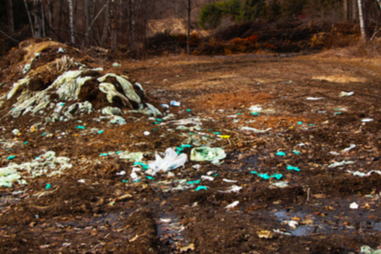By Jacek Deptula
Staff Writer
St. Michael’s College was recently ranked the 11th most environmentally friendly campus in the nation by the Princeton Review due to long-term environmentally conscious actions provided by students and faculty.
“In my personal opinion, the strength of Saint Michael’s College in terms of its sustainability efforts is our focus on student learning,” said Heather Lynch, director of sustainability and advisor of the student environment club GreenUp. “What really matters is how we engage our students in that process.”
Student driven efforts organized by Lynch, GreenUp, and the recently established Eco-reps who foster environmental responsibility on campus were particularly helpful in the effort of environmental sustainability.
“A college campus is the perfect setting to test pilot various sustainability initiatives as it acts like a mini-town,” Lynch said in an email. “Why not engage students in these areas and have them learn about these issues and explore solutions with those responsible for these various issues to come up with sustainable solutions?”
Currently, GreenUp is working on several smaller projects on campus, according to Ivy Luke, one of several senior leadership inside the student-driven club that is dedicated to making St. Michael’s more environmentally friendly.
One of the programs includes an initiative to have locally grown food at Alliot to lower carbon dioxide emissions, said Luke, who volunteers in the garden.
A main focus of GreenUp and the Eco-Reps is to “educate students about sustainability issues, distribute information, and create, coordinate and host activities in the residence halls, operating on the philosophy that we can improve our relationship with the environment by making simple changes in our own lifestyle,” Lynch said adding that it is hard to change people’s behavior.
Gabby LaRiviere, a first-year and current Eco-rep, said she and the other Eco-Reps are currently working with the first-year class in order to foster good habits like composting and recycling.
“We try to make everyone aware of how important, simple and fun some of these things can be,” LaRiviere said.
Luke still believes a current problem lies with the compost program on campus. Although it is state law, not all housing, especially dorms, have yet to receive compost buckets.
“It’s important to keep students aware what can or cannot be composted, and to make sure they don’t leave it in their house and get fruit flies,” Luke said.
Yet the compost program has seen improvement. GreenUp members would empty out compost buckets themselves just a few years back. Things have changed as the facilities department now empties them.
Lynch believes that there are many reasons why St. Michael’s is so environmentally friendly, which Princeton Review might have taken into consideration when ranking the college as one of the premier sustainable campuses in the country.
“It could be looking at how we’ve reduced our greenhouse gas emissions 28 percent since 2003 (albeit while increasing square footage of campus – which means we’ve been employing more efficient technology and curbing our consumption habits),” Lynch said. “It could be the college’s support of alternative forms of energy in the past few years (our solar array and use of geothermal heat pumps in our two newest buildings), mandatory collection of recyclables and food scraps to divert items out of our waste stream, initiative to support alternative modes of transportation.”


